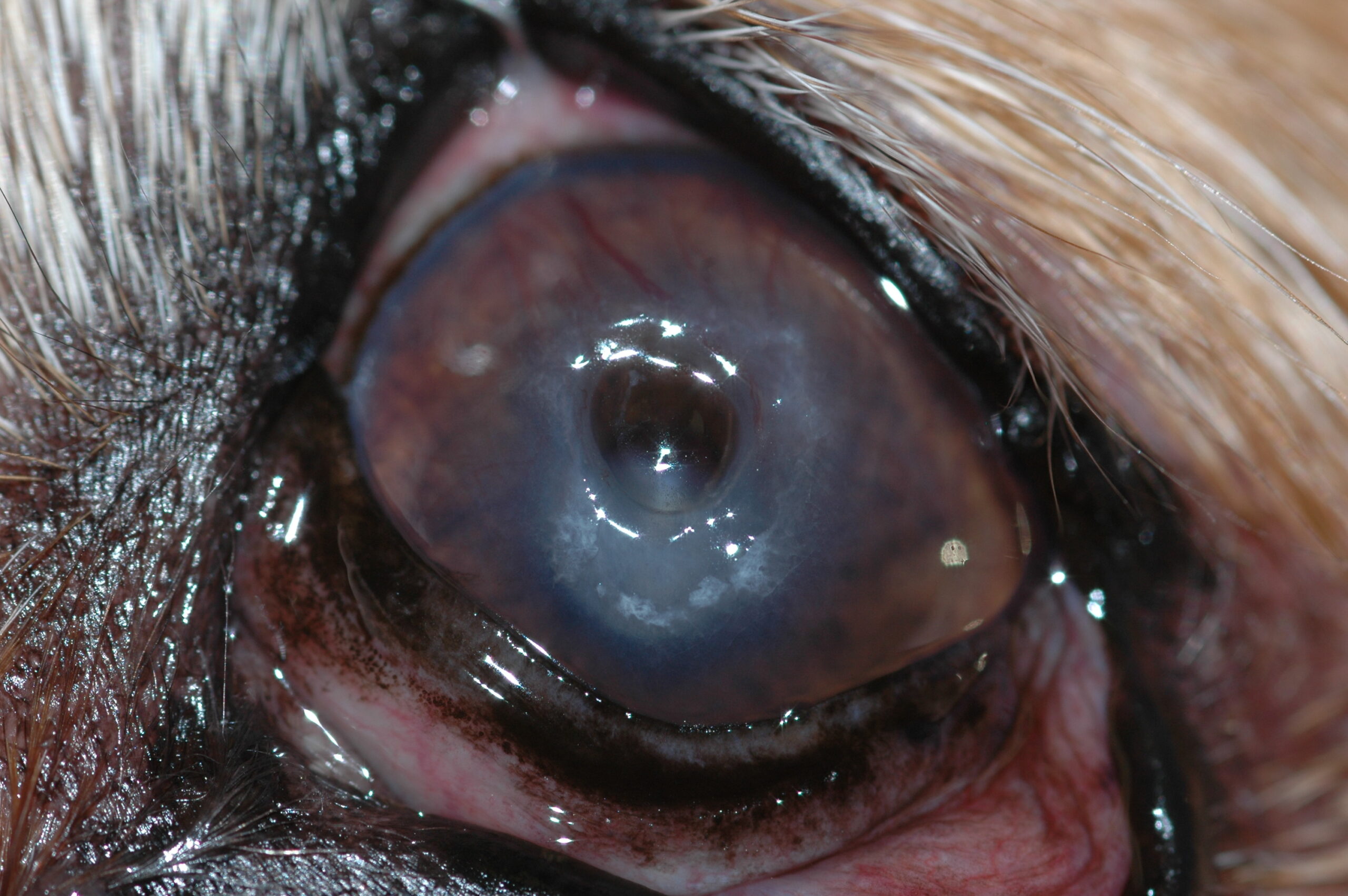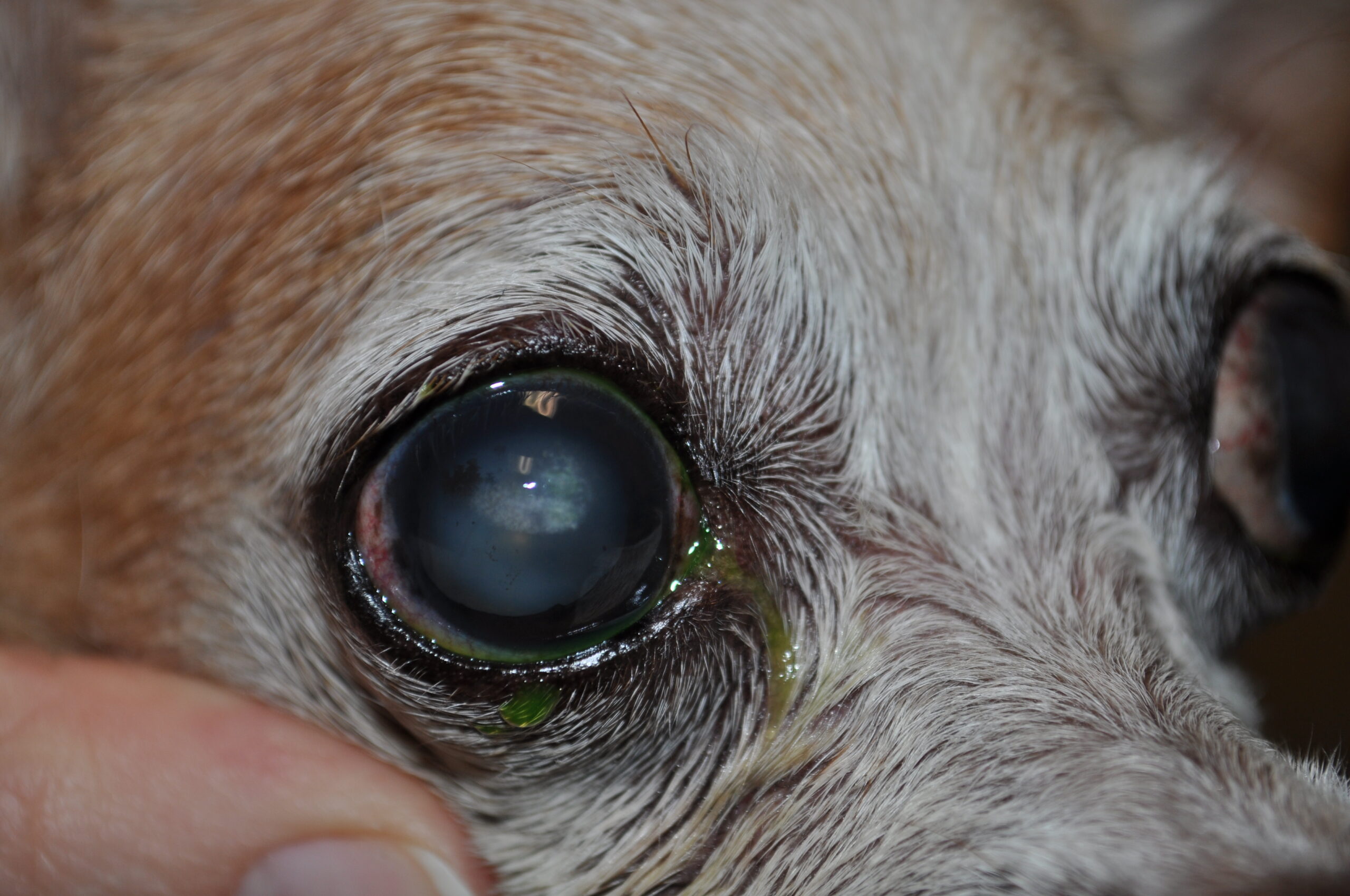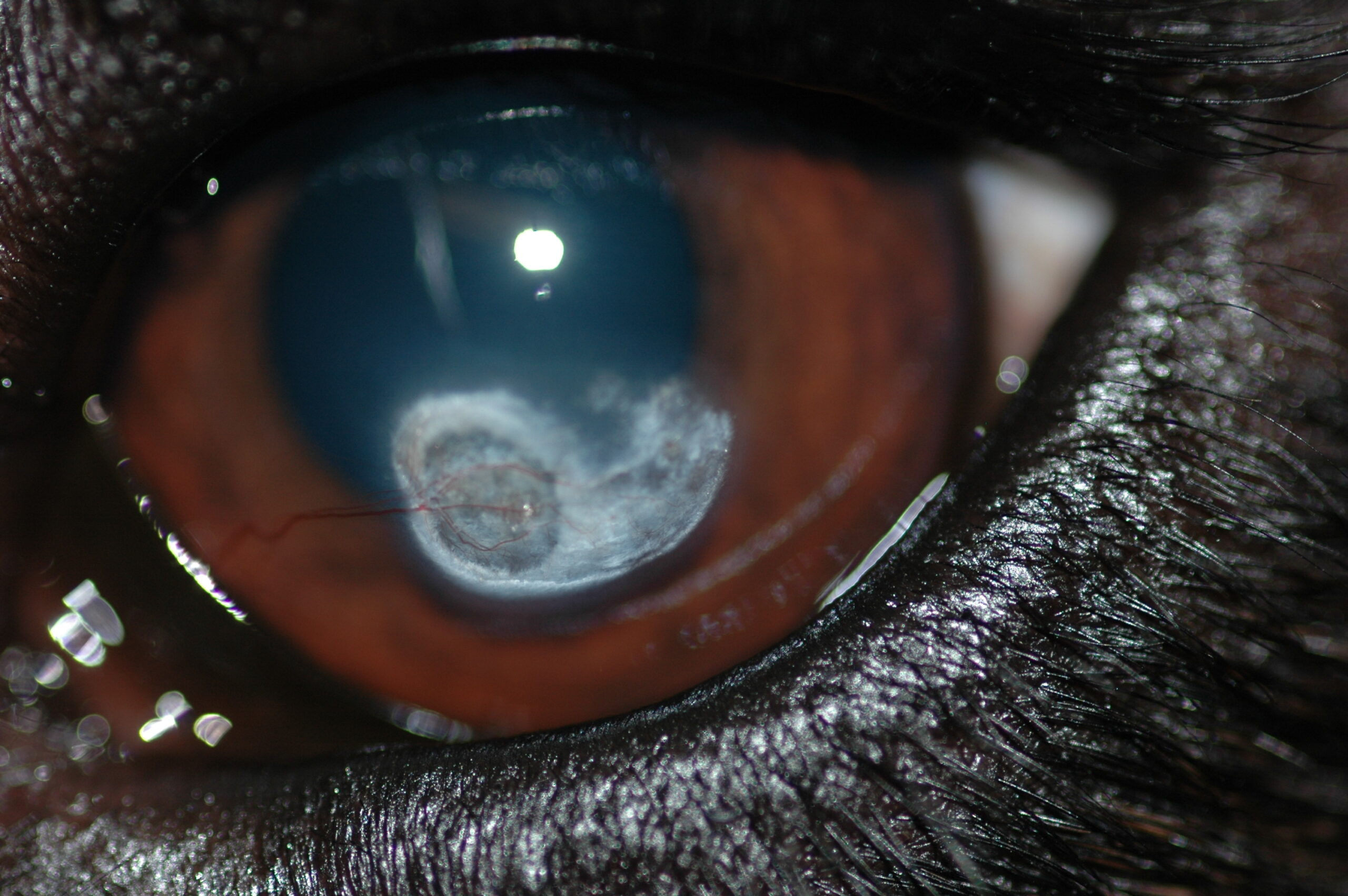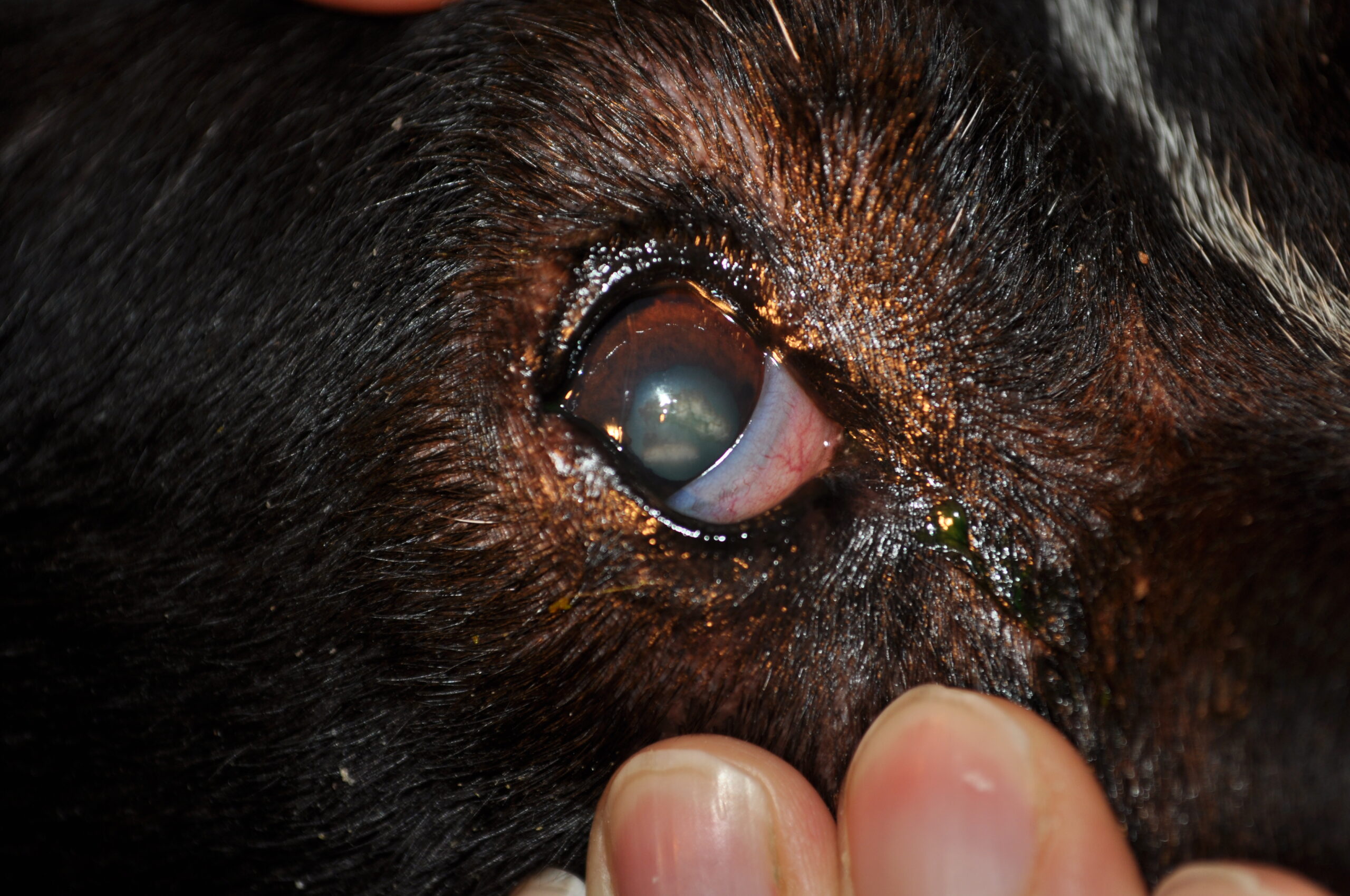Corneal Calcific Degeneration: Calcium Deposits in Your Dog’s Eyes

Corneal calcific degeneration (CCD) is a common condition in geriatric (older) pets. CCD is an area of abnormal corneal metabolism, in which calcium can accumulate in the surface of the cornea (the clear dome of the eye). This is a condition that can occur in any older patient, but dogs are more prone than cats.
Clinical Signs in Your Pet’s Eyes
Some symptoms to look out for are:
- Cloudy/white spots on the front of the eye
- Increased tearing or squinting
- Redness to the tissues around the cornea (the conjunctiva)
- Some patients may experience light sensitivity

Cloudy white spots in a dog’s eye with CCD.
Causes of Corneal Calcific Degeneration in Dogs & Cats
This condition is caused by age-related degeneration of the corneal tissue. Patients with chronic inflammatory conditions (such as dry eye), or patients who have been prescribed long-term topical steroids are more prone to CCD.
Diagnosis
CCD is diagnosed based on the appearance of the cornea. A history of white spots developing later in life is also important in evaluation. A Fluorescein stain is performed when this condition is suspected, as patients with CCD can develop corneal ulcers secondary to the calcium sloughing out of the cornea.

Performing a Fluorescein stain to evaluate for corneal ulcers in a senior dog.
Treatment
If your pet has CCD, a topical calcium binding agent is recommended. This medication is called Ethylenediaminetetraacetic acid (EDTA for short), and is made into an eye drop by a compounding pharmacy. EDTA needs to be used routinely for the rest of your pet’s life, as this will help to reduce the calcium build-up within the cornea.
If your pet has a corneal ulcer associated with calcium sloughing, they should also be prescribed a topical antibiotic to help the ulcer to heal.
This disease requires lifelong maintenance, but there is no cure. With persistent medical therapy, most pets do remain comfortable.
Prevention
There is no proven prevention, but early detection is very important as medical treatment is more effective when it is started early. Once the calcium builds up, patients can slough large pieces which can result in corneal ulceration or even worse, a corneal perforation.
If you see white spots on your geriatric pet’s eyes, please have them evaluated by your veterinarian for the possibility that the spots are calcium deposits.
When to See a Specialist
If you think your pet has the start of calcium deposits and your primary care veterinarian isn’t sure, please have them reach out to a Veterinary Ophthalmologist. Our specialists can help your veterinarian diagnose this condition with photographs and a discussion about their exam findings so that early treatment can be initiated.

White spot indicating CCD in a dog.

Cloudiness indicating CCD in a dog’s eye.